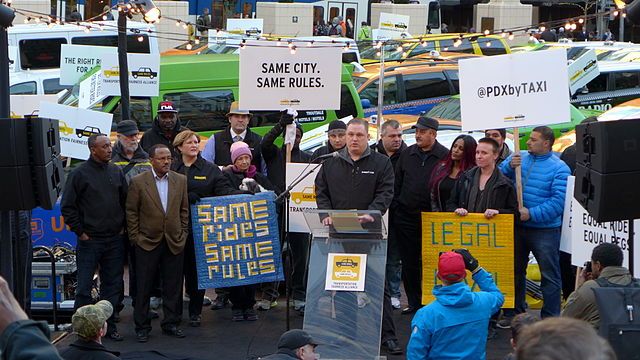Copenhagen Police is continuing with its crackdown on drivers working for the commercial carpooling service Uber.
Police said last year that drivers for the service would be considered in violation of the law for driving unlicensed taxis.
Last year, 15 Uber drivers were arrested. Since the start of 2016, nine drivers have already been arrested.
Søren Wiborg, the head of the traffic department at Copenhagen Police, said that all of the drivers are being charged with violating sections of the taxi laws and regulations.
Unwelcome American
None of the cases have yet come to court, so how the drivers will be punished is still uncertain.
A number of cases are slated to be sent to the district court in Copenhagen this week. Fines are expected to be levied against the drivers.
Uber is an American concept that was founded in 2009. It allows a customer to book a ride via a mobile phone which, on average, is 20-30 percent cheaper than a trip in a regular taxi.
The company has faced the wrath of angry taxi-drivers everywhere it has set foot, including New York, Paris, Rio de Janeiro, Hong Kong and London.
Taxi drivers angry
Violent protests against Uber have occurred in central London and Paris as taxi drivers fought what they see as an unfair challenge to their livelihood.
Calling the company illegal and anti-competitive, Danish taxi drivers have demanded Uber drivers meet the same regulations as they have to, such as paying taxes, extra fees for permits and higher insurance.
READ MORE: Transport company Uber defiant despite police warnings
Uber claims that their service is merely an agreement between private car owners and their passengers, which allow the two parties to share costs.
Protests continue
Upon its introduction in Denmark, Uber was reported to the police by public transport authority Trafikstyrelsen, which believes that the company is in violation of the law.
Taxi drivers in Copenhagen protested against Uber last Saturday, demanding that the service be forced to adhere to the same rules as taxis.
Uber is available in 67 countries and hundreds of cities. It has been banned in several locations.











